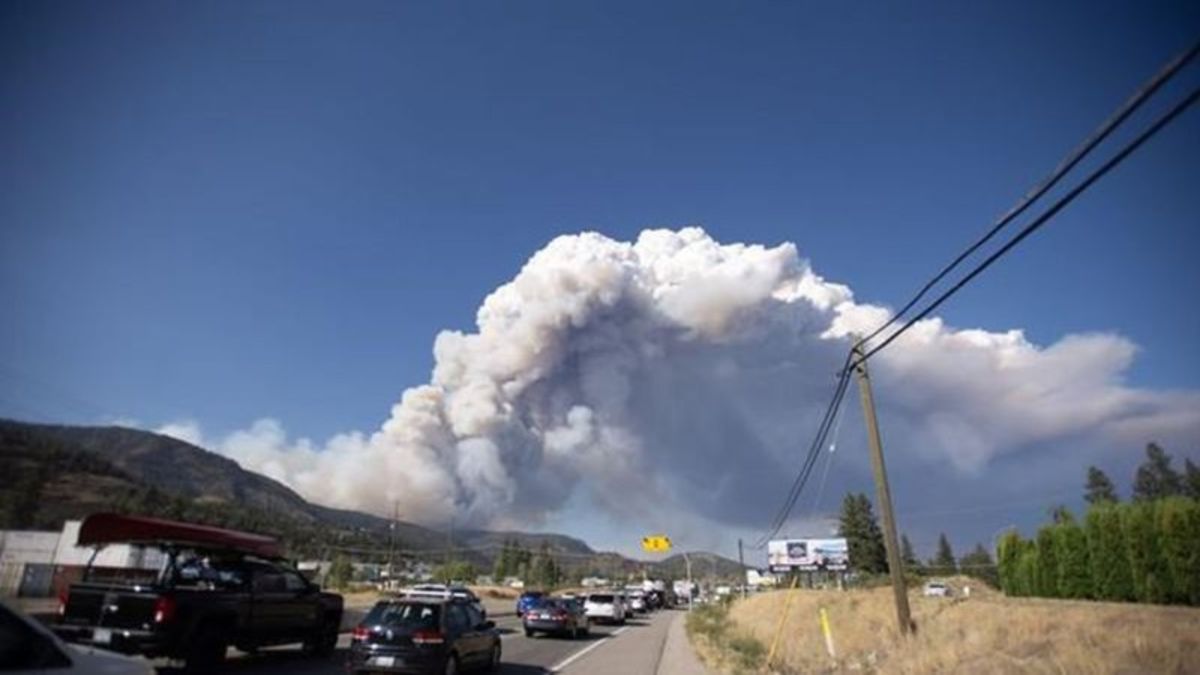kEiThZ
Superstar

Fire threatens homes near West Kelowna, evacuation orders, alerts issued in Kelowna
WEST KELOWNA, B.C. - A fast-burning wildfire threatening West Kelowna, B.C., is challenging fire crews as they...

Damn. Doesn't BC usually get tons of rain?
Fire threatens homes near West Kelowna, evacuation orders, alerts issued in Kelowna
WEST KELOWNA, B.C. - A fast-burning wildfire threatening West Kelowna, B.C., is challenging fire crews as they...nanaimonewsnow.com
Part of the internal fear expressed by some in relation to SAR is that not all of the assets are dedicated 'yellow' and it would cost the military assets they would otherwise still need unless the government was willing to lay out significant dollars for additional.. Also, these domestic operations are seen by some as a positive exposure to a public that rarely thinks of the military at all.There's massive risk right now. Given the commitments to NATO and our personnel shortfall this could end up simply breaking people only making every problem worse.
I've long been of the opinion that Canada should have a proper Civil Defence force that even takes over major functions like Search and Rescue. The CAF can then support that agency rather than being the first responder for this stuff. The military role will never disappear completely. There's a lot of capabilities that only the military could support and maintain. Such an agency would also be a good spot for injured veterans who can work but don't meet university of service and so are forced out today, letting substantial public investment out the door.
My preferred model is the French one:

Sécurité Civile - Wikipedia
en.m.wikipedia.org
A remarkable facet of a lot of these organizations is how much of it is volunteers. 97% of Germany's 80k strong Civil Defence force is volunteers.

Technisches Hilfswerk - Wikipedia
en.m.wikipedia.org
Alternatively one of the most professional services out there is Singapore's Civil Defence force:

Singapore Civil Defence Force - Wikipedia
en.m.wikipedia.org
Damn. Doesn't BC usually get tons of rain?
This is why carbon tax is useful. A global, appropriately set carbon tax would remove the need for navel gazing or supply chain emissions estimations (which are terribly difficult to do with any accuracy or precision). The price signal is very good at allocating resources.
Part of the internal fear expressed by some in relation to SAR is that not all of the assets are dedicated 'yellow' and it would cost the military assets they would otherwise still need unless the government was willing to lay out significant dollars for additional..
Also, these domestic operations are seen by some as a positive exposure to a public that rarely thinks of the military at all.
A global, appropriately set carbon tax would remove the need for navel gazing or supply chain emissions estimations (which are terribly difficult to do with any accuracy or precision). The price signal is very good at allocating resources.
Secondly, while the average electrical generation in Ontario is quite clean, the marginal generation might not be. Ontario needs additional generating capacity, and solar panels tend to help with peak summer cooling loads. In time, the peak energy demand may shift to winter with adoption of heat pumps. Ontario may also be exporting surplus solar to nearby US states with considerably dirtier grids.
Dedicated SAR assets might be 'dedicated' in an oh-so Canadian way. The rotary are yellow but I wasn't aware that the CC-130s of 424 and 435 squadrons were also, since they are multi-role squadrons.I've never heard this. All our SAR assets are painted yellow.
The rotary are yellow but I wasn't aware that the CC-130s of 424 and 435 squadrons were also, since they are multi-role squadrons.
Fair enough, but it doesn't take away from the current reality that all SAR assets aren't yellow. And I hope the 295 fleets works out, because any alternative will add a decade or two (not counting 'now what do we to with them').The CC130H fleet is multirole because we used Hercs for SAR before. It's a legacy function. But they are being replaced by the CC295 Kingfisher which are all painted yellow. Dedicated SAR role fleet. And if the Kingfisher doesn't pan out, we'll buy stubby C130Js and paint them yellow while leaving the stretch Js in air force grey exclusively for transport.
Sometime in the early 2000s, the RCAF made a decision to commit to one fleet per role. And for SAR, that decision led to replacing both the SAR CC130H and the CC115 with a single dedicated Fixed Wing SAR fleet. That is the CC295.
Fair enough, but it doesn't take away from the current reality that all SAR assets aren't yellow. And I hope the 295 fleets works out, because any alternative will add a decade or two (not counting 'now what do we to with them').




